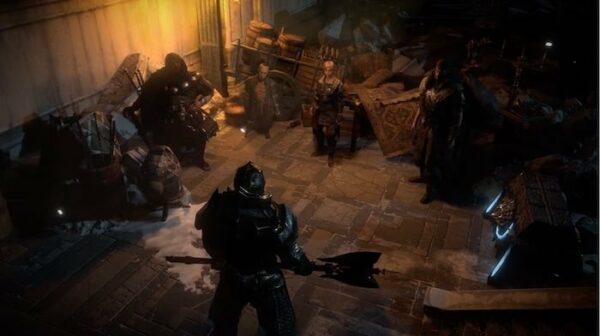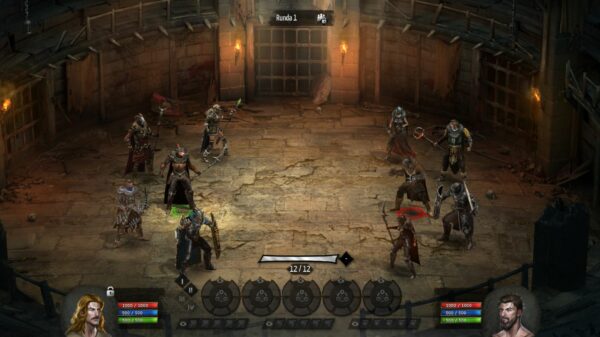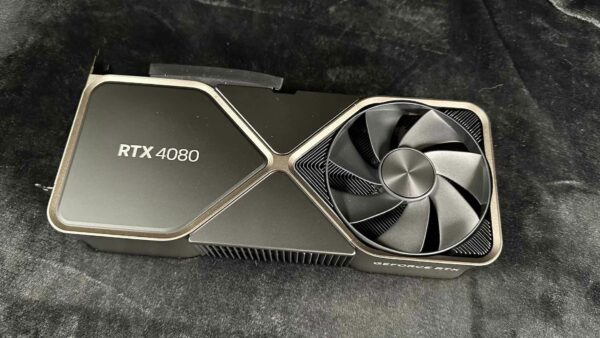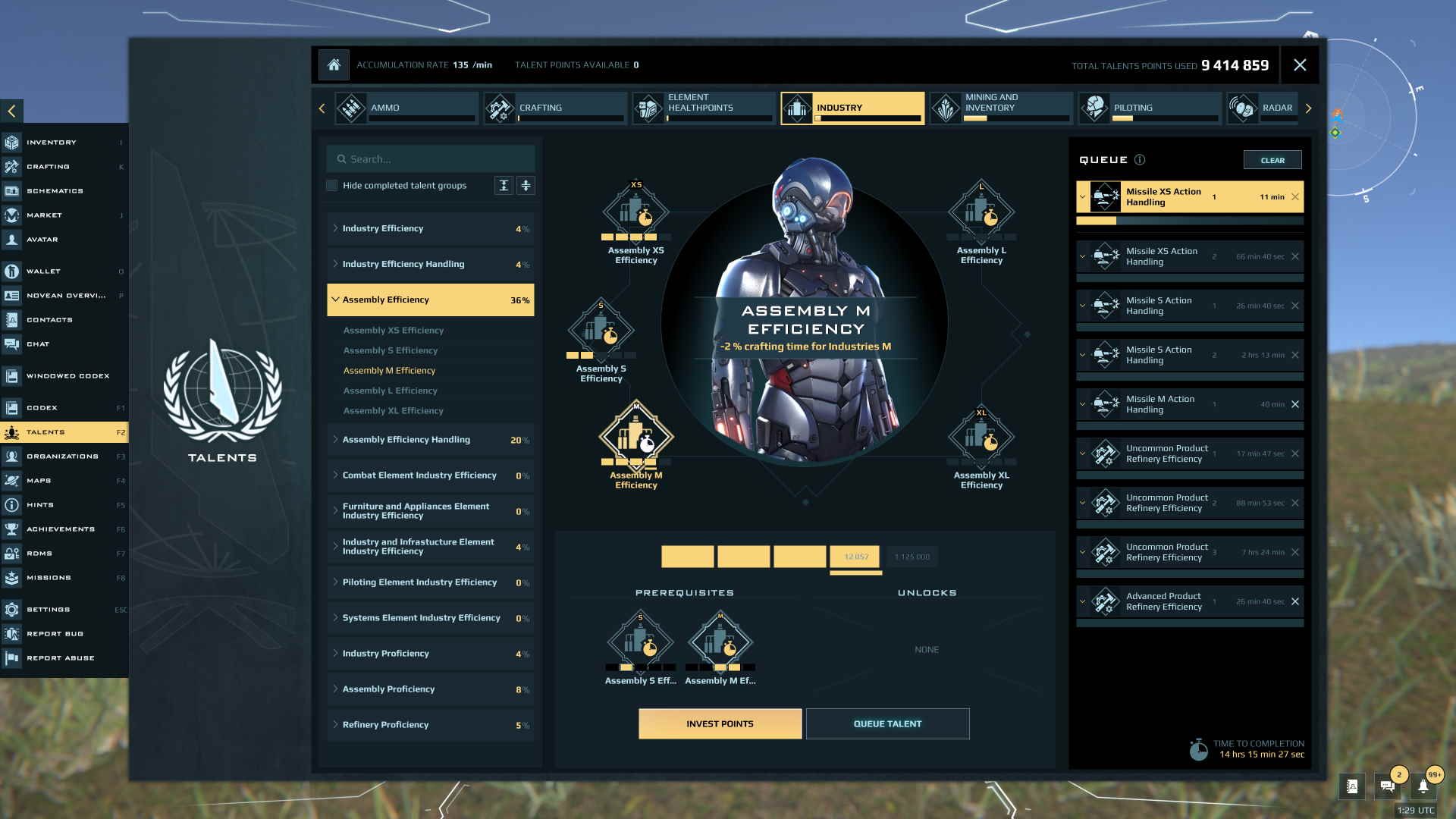
I think my first real moment where I stopped having fun in Dual Universe was after I wrote my review-in-progress and decided to jump into space to head off of Haven to Alioth, a nearby planet. After fighting gravity to successfully launch my ship laden with the goods I would need to establish another colony on Alioth, I spent the next twenty or so minutes soaring through space between the two planets.
However, upon approaching Alioth, I started to speed up, its gravity pulling me in too fast. I tried slowing down, but it was way too late, as my cargo vessel and all the supplies I had spent days accumulating burned up in the atmosphere. The most frustrating part wasn’t losing my items, though that did hurt. Instead, it was the fact that Dual Universe didn’t really teach me where I went wrong, it never fully explained the complexities of spaceflight in its barebones tutorials, instead leading to a frustrating experience of trial and error at the cost of the real hours I had spent in-game.
Complex for Complexity’s Sake
Dual Universe is a series of interconnected systems that all aim to influence each other, whether it be basic resource harvesting, building using the incredibly versatile voxel building system, or even just taking your goods to market. It’s a fully player-driven economy, with no NPCs to buy or trade with, the exception being the ship depots at some of the points of interest on each planet, meaning that supply and demand are determined by the players themselves and not some arbitrary system.
Underpinning everything is the incredibly complex and obtuse crafting system, where you’ll build the literal building blocks of everything you need in Dual Universe: from turning raw ore into refined ingots that will go into everything from assembly lines to the very voxel materials used to create the giant player structures that dot the landscapes of each planet.
Complex crafting is nice, and it was something that I was eager to unpack as I kept playing. Dual Universe takes this complexity to a dizzying level, with every single item breaking down into seemingly multiple parts. On one hand it really makes you feel like you’re building something from scratch. On the other, this is a video game and I don’t want all my time spent realizing that I forgot X amount of some long-forgotten part just to build a simple storage container.
Building a new storage container isn’t as simple as having the raw materials to make it, rather it requires you to completely build out multiple components, each one as complex as the last, making the simple act of building a small cargo box something with at least three or four separate steps to create.
However, I do find myself in awe of the players who have built out full industrial pipelines with materials and LUA scripts handling everything, truly maximizing every aspect of the design. This feeds into the min/maxing personality of many MMO players beautifully. I’ll admit too, the first time I linked my assembly lines together and started to really grind out materials, it was a triumph. But that complexity is hard to keep up, especially by yourself, and especially when this aspect of Dual Universe isn’t necessarily what I’m all that interested in.
I don’t mind complexity, but I wish Dual Universe would gradually add this complexity on the system as I got farther along rather than just hitting me over the head with it out the gate. As a result it makes it incredibly frustrating and time-consuming to build even the most basic items in Dual Universe, making me feel early on that I was seeing very little progress.
What…do the…skills…mean?
This is compounded by Dual Universe’s skill system, which in itself is incredibly convoluted. The way it’s laid out isn’t necessarily the easiest to navigate, with many of the categories not really explaining what they are meant to do, but it’s necessary to learn to do even the most basic of things, such as building a larger storage container or conserving fuel on long-haul spaceflights.
It’s a real-time skill system that keeps earning skill points even when you’re offline, much like we see in EVE Online, which I do enjoy as I can set a goal, fill a queue and forget about it. I also appreciate the fact that Dual Universe still accumulates skill points when you don’t have an active queue, making me feel like I’m not missing any real time here if I forget to re-up my queue. I can just take those accumulated skill points and buy what I need. It’s a nice concession, understanding that player aren’t always going to be logging in daily just to check a skill queue, and one I wish more real-time skill systems would use.

What I don’t like, though, is how hard it is to easily see what you need to learn in order to accomplish a goal. Instead of making it clear what learning a skill would get you, I found myself having to find the item I wanted to craft and see it there. Thankfully you can add those skills to your skill queue from there, but I really wish the skill sheet where many players are going to go, would make it clearer.
Taking Off
Since my review-in-progress and my subsequent disastrous first attempt and getting back onto a planet from space, I’ve learned a bit through trial and error. Spaceflight is one of the strongest – and weakest – points of Dual Universe. It can be incredible to lift off from a planet, seeing the horizon shrink and the stars start to poke out of the black night, as well as seeing my atmospheric engines flicker off, only for my rockets to come to life to give me the push I need to escape the planet’s gravity. These little features make spaceflight look impressive, especially when the rest of Dual Universe looks dull and flat.
It’s incredible and makes it a good target to hit in progression. It’s an uphill grind, taking ore and other products to market in your basic speeder over and over again to build up the money needed to either make your first spacecraft or just buy a premade one from the store at a major trading hub, but the payoff of finally getting off Haven is great.
However, while there is a tutorial teaching flight in-game, there isn’t really anything teaching the basics of spaceflight, that all-important aspect to progressing in Dual Universe. As a result, when I took off and burned way too much fuel not really understanding why that was, I immediately tried to turn around and land back on Haven when I realized I likely would not have enough fuel to get me to Alioth. However, in doing so I made a crucial mistake of just being too fast, unable to slow myself down enough to not break up in the atmosphere.
Dual Universe didn’t exactly explain all of this, though. Dejected, I took to forums, Reddit, and eventually Youtube to try to figure out where I went wrong. The fact that in order to adequately learn how to play this crucial aspect of Dual Universe I was forced out of the MMO itself is incredibly immersion-breaking and frustrating.
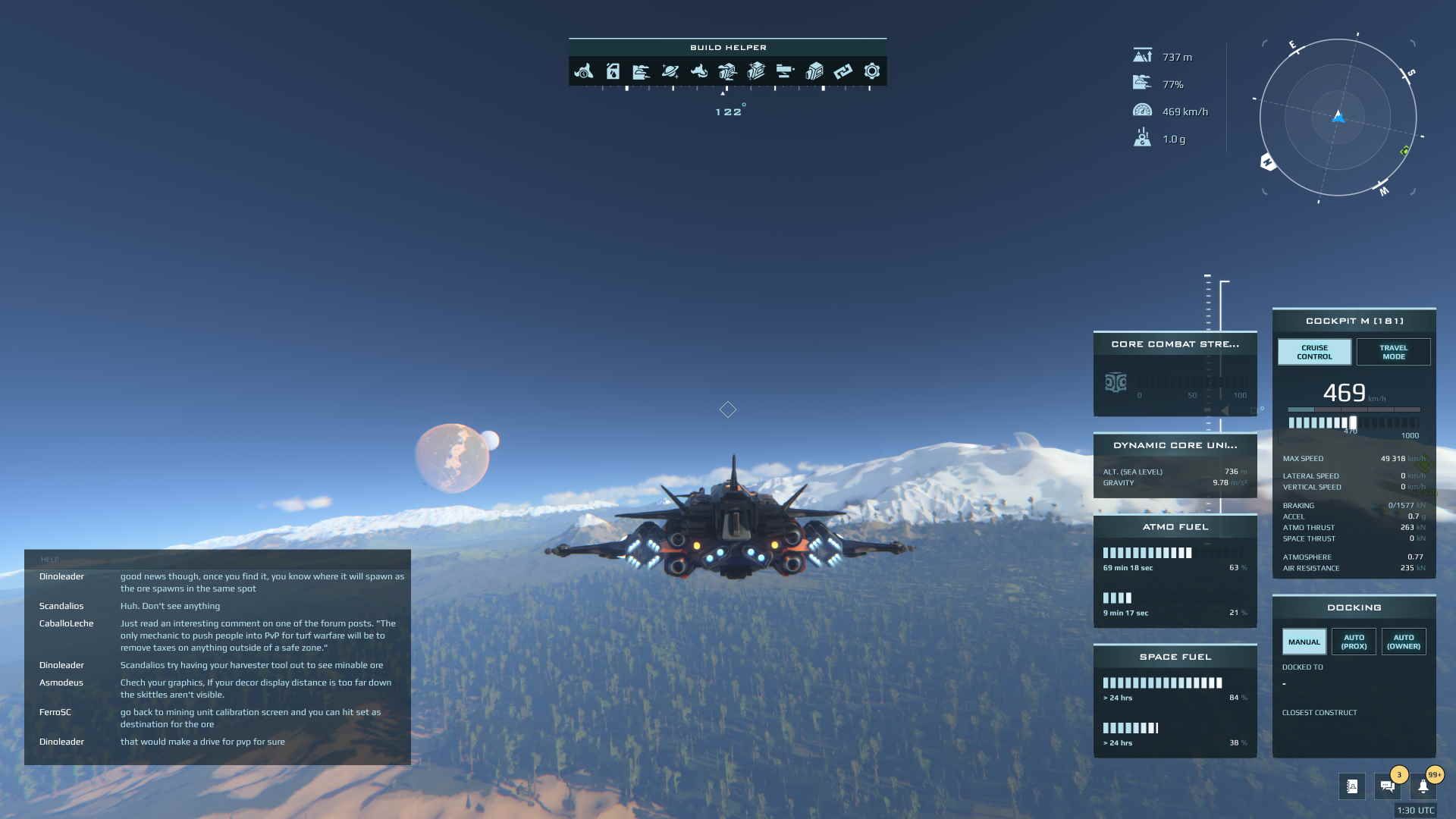
There is a tutorial in Dual Universe for many of its basics, but it really relies on the community to teach how to play the MMO properly. EVE Online did this for a while too, and still ultimately does, to the detriment of the player experience. It’s a horrible way to get players into a game and keep them if they are required to look elsewhere for exactly how to play it at every level.
I get there needing to be some sort of trial and error involved, and I’m not expecting everything to be just handed to the player. But for mechanics that I’ll interact with a ton, especially important ones like spaceflight, it should be more clearly explained outside an occasional tooltip that says one is going too fast. If I screw up, at least then I know why, not left wondering what I did wrong and then have to leave the game in order to learn why.
It doesn’t help that while the flight model in Dual Universe is impressive, using physics to accurately simulate the experience, controlling the ship is relegated to the mouse and keyboard for the most part. DU does technically support HOTAS, but they aren’t natively supported. This means you can’t plug in your X52s or a Flight Yoke and really get into it, instead, it’s a dizzying affair of mapping and remapping those controls, and even then it doesn’t work as well as it could.
As a result, engaging thrusters, and making fine adjustments to pitch and altitude are handled using the keyboard and mouse by default, making these maneuvers feel inaccurate. I can’t understand how a title that encourages spaceflight would release without better ways to control those ships. Certainly, you can use the LUA scripting feature in-game to help make much of your take-off and landing automated, but that takes much of the joy out of the experience for me. I want to get good at flying, not leave it up to an auto-pilot to do it for me.
Paying Them Taxes
While at the outset of Dual Universe everyone gets a free plot of land on one of the starter planets, the idea is that you’ll slip those bonds and start to expand to other planets, such as nearby Alioth or a planet outside of the protected sphere in the solar system. While claiming your first territory off of your starter planet is free, you’ll just need a Territory Control unit you can either buy from a player selling it at market or, eventually, make yourself, that new territory will require a weekly upkeep tax.
This means that in order to keep your new shiny plot of land humming along you’ll need to pay a weekly tax of 500K units, a large number, especially if all you’re doing is breaking rocks and selling the materials at market. Novaquark must have realized that this would be a large tax initially as right now there is a daily 100K unit daily log in reward, but why have the tax in the first place? Likely it’s to combat someone snapping up territory and then never logging in, thereby depriving new players of the chance to claim a plot of land. However, the team could just put a territory limit on players, or make the territory revert back to claimable if it hasn’t been interacted with meaningfully in that same seven-day period.
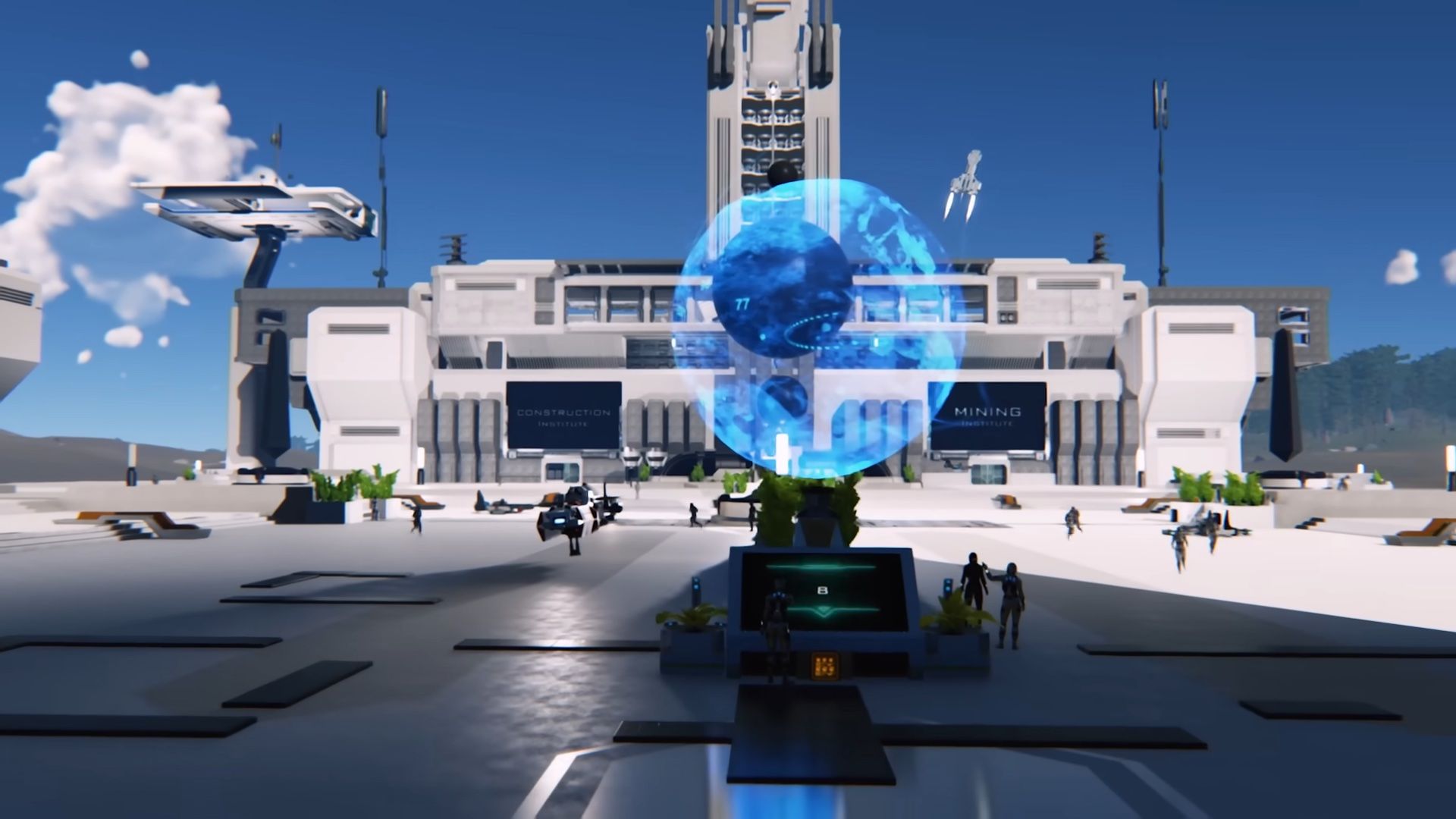
As a result, while you could log in, claim the reward and just use that to pay the upkeep, it does deprive what could be used to stimulate the in-game economy instead. It’s a high tax, and seeing as it doesn’t seem to act as anything more than a way to draw some credits out of the economy itself, I can’t help but think there are better ways than just creating grindy busy work to keep my territory alive.
Thankfully, if you’re unable to pay the tax, or you don’t log in for a while, there is a way to keep your territory from dropping from your grasp. Setting up your territory as a Headquarters will keep it from going back to claimable if you miss your upkeep, though the amount of Headquarters you can have is limited.
Compounding (Dis)Interest
Since everything is player-driven in Dual Universe, it really requires being locked into the economy to really maximize your time in-game. However, for me this is an issue as one of the lasting appeals of a sandbox like Dual Universe is the idea that you aren’t stuck in a single gameplay style, instead, you can make yourself out to be whatever you want. If you want to be a titan of industry, you can, while others might want to find themselves taking part in some space piracy, preying upon miners and crafters outside the safe zone.
And in theory, this is all possible. But in practice, I’ve found it less so.
While Dual Universe is an MMO at heart, there aren’t really any strong mechanics to get players together in-game. Sure, there is a social panel where you apply to join the myriad player organizations in Dual Universe, but there isn’t exactly anything pointing you in that direction. And given the MMO’s small player base, finding enough players to do what aligns with your goals isn’t necessarily easy.
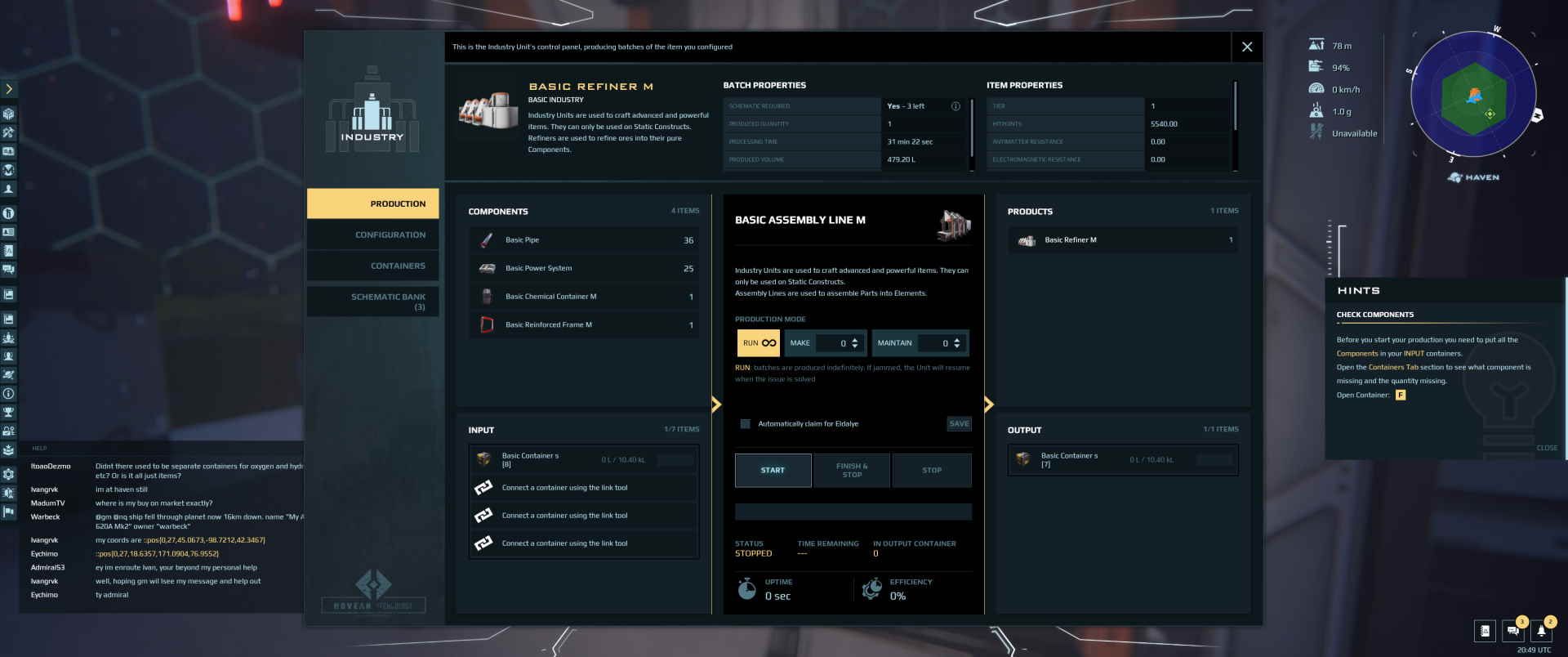
It also sort of forces players early on to invest time into the industrial aspects of Dual Universe, whether they want to or not, completely making the sandbox idea irrelevant for a large chunk of the early game. Instead of being given the option to just grab a ship and go terrorize the stars, Dual Universe pretty much forces you to start building an industrial crafting complex to build the capital needed to eventually invest your time in what you actually want to do.
In my opinion, it flies in the face of the sandbox premise and makes me less inclined actually to log in. Getting to where I want to go feels insurmountable at times, especially since the grind early on can feel a bit much after a while. Having to truck my goods back and forth the market in the hopes of being able to eventually afford a fighter that I can buy from the store or build myself (assuming I have the skill to do so) is somewhat frustrating when the pitch is that you can be what you want to be.
These treks can take ages as well, especially if you’re not necessarily established next to a market from the get-go. Early treks on my entry-level speeder could take twenty to thirty minutes on their own, making for a dull, lifeless experience in-game. Even after getting an atmospheric hauler, it wasn’t a quick trek given that I was at least 100KM from the nearest market. In an age where spaceflight and interstellar travel exist, apparently online shopping was left in the good-old Milky Way.
That Unfinished Feeling
Dual Universe is ambitious, and it should be commended for that ambition. Its voxel-based crafting and terra forming are incredible and in the right hands can take seemingly innocuous materials and create vast space stations for commerce or large industrial facilities for some of the more active player groups. While its underlying systems might be unnecessarily complex in my opinion, I love that there is some complexity there – it shouldn’t be entirely straightforward and require some actual learning on the player’s parts. Even with all the issues I have with the lack of clear tutorials for some of the MMO’s systems, I do like that there is still some trial and error involved, reminding that it’s not just your skill points, but your skill as a player at play here.
However, it leaves the question open for me: what is there to do aside from the market? As of right now there are no systems that allow you to take over the territory of another faction or claim control over a world. Instead, there are hot spots in space that give valuable resources for players to fight over, which could provide a reason to engage in PvP, it feels so far out of reach and doesn’t feel as compelling as having to protect your hard-earned and built planetary holdings.
Additionally, while the crafting, flight, and market systems are clearly the core of the MMO, it leaves me really wondering day in and day out why I’m logging in other than to do busy work. And it doesn’t help that the planets themselves feel lifeless thanks to the complete absence of wildlife and NPCs that roam the planets. Lush worlds like Alioth feel barren despite the many varied biomes that make up the surface, and worlds like Haven just look uninteresting. When I do get near another player or their territory, the performance in Dual Universe struggles to an absolutely unacceptable level, especially near the main hubs on Alioth.
Oftentimes when navigating at the market hub on Haven, Dual Universe would start to feel like a slideshow, despite my PC being equipped with a 10th-gen i7 CPU and the RTX 4090 Founder’s Edition graphics card. Considering how flat and unremarkable the visuals look, performance in these instances is frankly unacceptable. It gives the sense that Dual Universe was rushed out without the extra polish it needed to really get performance where it needs to be.
Hard to Recommend
Dual Universe is not a great game, as a result. With the lack of polish, clear direction, or anything really compelling to do unless you really want to try your hand at becoming a industrialist in a player-run economy, it’s hard to recommend to anyone, especially when you consider it will require a subscription fee to maintain.
This $ 15-a-month sub will let you continue to play Dual Universe, but given all of its issues, it makes it hard to justify that cost. Honestly, Dual Universe would be better served just selling the title and having an in-game shop that sells cosmetics for ships and players rather than the sub fee.
This is compounded when you consider No Man’s Sky, another space exploration and crafting title, as well as Elite: Dangerous don’t require a subscription and are just infinitely better games. No Man’s Sky nails the exploration and crafting loop, while also creating ways for players to game together, while Elite: Dangerous has some of the best real-world spaceflight simulation in MMOs today (complete with full HOTAS or gamepad support). It’s hard to recommend Dual Universe over those two titles, or even EVE Online, which has a ridiculously high learning curve for some, but has established itself as a true player driven sandbox for almost twenty years – and is free to play.
I really wanted to enjoy Dual Universe, and at first I was. I truly did enjoy the grind early on, until I realized that, for the most part, the grind was all there was. The ambitious systems that define Dual Universe also doom it, and as a result there just isn’t much to do aside from harvest, sell and rinse and repeat, even if you add layer and layer of industrial complexity to the loop. While player ingenuity and artistry will make some of these systems more and more interesting, especially with LUA scripting and more, for me, it just doesn’t make for a compelling experience I can recommend.





